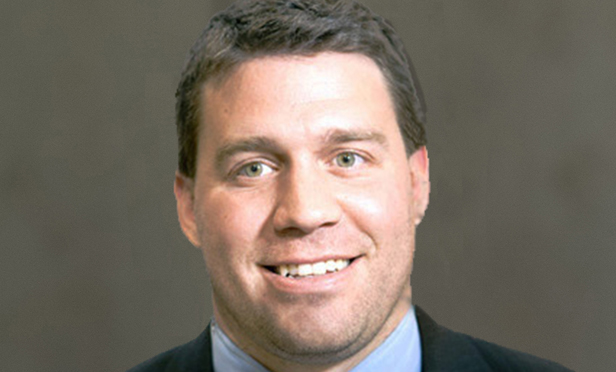 Ackerman: “We try not to deal in maybes and what-ifs.”
Ackerman: “We try not to deal in maybes and what-ifs.”
ATLANTA—It’s good to be in net lease. So says Andrew Ackerman, managing director for locally based Sands Investment Group.
“Cap rates are staying flat and the demand from the market continues to remain strong,” he says. “Because of that, we’re seeing a consistent increase in our transaction volume.”
And while cap rates clearly vary by market and region, wherever they are, they’re at a premium, says Ackerman. “Whether you are a one-store operator selling at an eight cap or a Walgreen’s owner selling at a five cap, that is a premium compared to what you would have gotten in 2010 or 2011.”
The net lease market has progressed from its niche beginnings to represent a major sector within retail real estate. The folks of SIG might well embody that growing sophistication as well as any of its competitors, with a macro-business approach that reaches beyond the specifics of a deal, even while each of the team members focuses on specific triple-net sectors.
For Ackerman, that focus is the owner/user segment, “so I deal with a lot of franchise restaurants and gas stations,” while other colleagues might be intent on auto-parts or dollar-type retailers. He’s quick to add, however, that such a focus won’t ever stand in the way of helping potential clients. But it does elevate the conversation.
“The days of being just a net-lease expert are limited,” he tells GlobeSt.com. “Understanding the client’s business, we can leverage those relationships and that knowledge. You can discuss the mechanics of the overall operating business and not just the fundamentals of the lease. All at once, you’re more than just another broker calling for a listing.
“One of the things we like to talk to our operator clients about, whether they’re a franchisor or franchisee, is the ability to get high-leverage financing and maximize their return in their operations,” he explains, “plus making sure the capital allocation is correct. Net lease can be a great source of growth capital, especially today, as opposed to more traditional financing markets.”
In large part that’s because the sale/leaseback market, “doesn’t dry up like the banking market did in 2010,” Ackerman says. “The yields just adjust and owner/operators can usually make that work.”
That advisory role is an approach that clearly pays for SIG, which reports a 22% jump in listings earned over this time last year and a 24% hike in deals closed. “We’re having a very good year,” he says.
Amidst the talk of market peaks, Ackerman remains a long-term optimist. “I’m not a doom and gloom guy,” he says. “What I see on a daily basis is a lot of investors looking to place capital in the net lease marketplace in an effort to obtain a consistent return on their investment. Even as lenders tighten up their underwriting, I see investors willing to make up the difference for the sake of having a safe place to invest their capital.”
Net lease deals speak for themselves, he continues, driven in large part by “the uncertainty in other real estate asset classes. In addition, it’s a relatively management-free asset class, where you can get a fixed yield and still get the real estate appreciation. The more uncertain things get, the more people continue to be driven to the relative stability of this asset class.”
Asked if the threat to 1031 exchanges nips at that professed market confidence, Ackerman holds firm, even though he sees the problem it would cause, not just for real estate, but “for the overall economy, but I’m not worried about it happening today. It’s talked about a lot, especially in an election year. But we try not to deal in maybes and what-ifs.”
Even within the swirl of political “talk,” Ackerman expresses his confidence both in the state of the economy and the direction of the market. “The benefit of being here, in this asset class, is that it’s a hard, physical asset and, as time has shown, there’s a flight to quality when things get tighter.”
And if the rumblings get louder? “We’ll continue to keep an eye on them, but we maintain a realistic perspective, and we’ll define at that time what it means for us.”
















 Copyright © 2024 ALM Global, LLC. All Rights Reserved.
Copyright © 2024 ALM Global, LLC. All Rights Reserved.